
GM class action lawsuit overview:
- Who: Plaintiff Brian Markus filed a class action lawsuit against General Motors LLC.
- Why: Markus claims GM sold vehicles with defective engines.
- Where: The GM class action lawsuit was filed in Michigan federal court.
A new class action lawsuit alleges General Motors LLC sold vehicles with defective engines.
Plaintiff Brian Markus filed the class action complaint against GM on June 18 in Michigan federal court, alleging violations of state and federal consumer laws.
Markus claims in his lawsuit that GM knowingly sold hundreds of thousands of vehicles with a potentially deadly defect in their engines, putting countless lives at risk.
The lawsuit says the defect involves the bearings in GM’s L87 Engines, which are prone to failure, resulting in engine block breaches and/or engine seizure.
The defect can lead to catastrophic engine failure at any moment, causing loss of power while driving at high speeds, increasing the risk of a crash, the lawsuit says.
In April 2025, GM issued a safety recall admitting the existence of the defect and its potential for crashes and injuries.
However, Markus claims the remedy offered in the recall is inadequate, failing to address the root causes of the defect and leaving consumers waiting for a catastrophic engine failure.
GM’s failure to disclose the defect has also resulted in a significant loss of value for consumers who spent tens of thousands of dollars on their vehicles, the lawsuit explains. Had consumers been aware of the defect, they would not have purchased the vehicles or would have paid less for them, it says.
GM knew about defect, plaintiff claims
Markus argues that GM knew about the defect for years, citing customer complaints, individual lawsuits and claims for arbitration.
Despite this knowledge, GM continued to market its vehicles as safe and reliable, the lawsuit alleges.
Markus claims GM violated consumer protection laws by failing to disclose the defect and offering an inadequate remedy, and that the automaker’s actions have caused an ascertainable loss of money and property for vehicle owners, including loss of value, loss of use and repair costs.
The plaintiff seeks equitable relief, including a proper remedy for the defect, curative notice, recovery of damages and reimbursement of repair costs. He is demanding a jury trial and is seeking damages for himself and all class members.
In January, the National Highway Traffic Safety Administration launched a preliminary investigation into nearly 878,000 GM vehicles equipped with the L87 V8 engine, following 39 complaints of sudden engine failures due to bearing issues that could cause loss of power and increase crash risk.
What do you think of the allegations made in this GM class action lawsuit? Let us know in the comments.
The plaintiff is represented by E. Powell Miller, Dennis A. Lienhardt and Dana E. Fraser of The Miller Law Firm P.C. and Elizabeth A. Fegan and Jonathan D. Lindenfeld of Fegan Scott LLC.
The GM class action lawsuit is Markus v. General Motors LLC, Case No. 2:25-cv-11821-FKB-EAS, in the U.S. District Court for the Eastern District of Michigan.
Don’t Miss Out!
Check out our list of Class Action Lawsuits and Class Action Settlements you may qualify to join!
Read About More Class Action Lawsuits & Class Action Settlements:
- Krispy Kreme data breach sparks class action lawsuit
- Walgreens escapes lawsuit alleging L’Oreal hair relaxer caused plaintiff’s sister to die from cancer
- Casely hit with class action lawsuit over power pods overheating and catching fire
- Class action claims ‘preservative-free’ Emerald Nuts include artificial ingredient



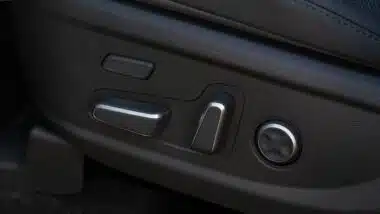
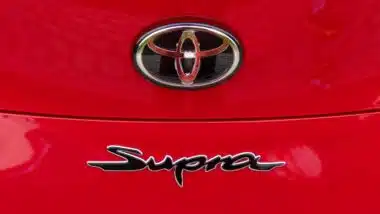


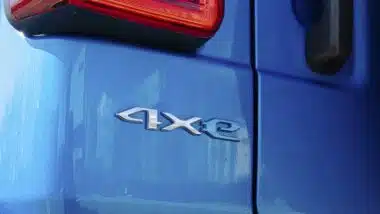


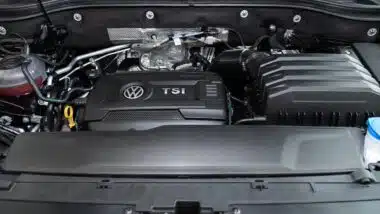

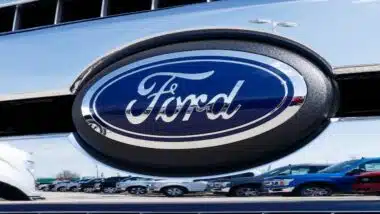
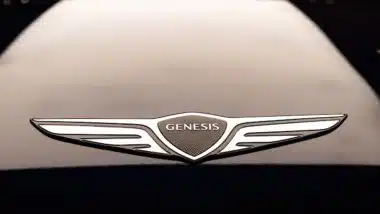

35 thoughts onAnother GM class action claims V8 engines prone to catastrophic failure
Please address me and advise my.
Please let us know when we can join. 2021 GMC Sierra. Been having problems since we purchased it.
Is there a way a can join a class-action lawsuit?
Two months ago, we bought a 2022 Yukon AT4 Pre-Owned Certified with 50,000 miles. Two weeks ago, we were driving on the freeway at 75 miles per hour when it suddenly shifted into neutral and slowed down. We had to immediately pull over onto the shoulder and get out of the vehicle, as it was a very narrow shoulder. It was a very dangerous situation because of how it happened and because we were also traveling with our young children.
Since the vehicle is certified and under warranty, we managed to have our insurance tow it to the dealership where we purchased it. There, they told us that the engine had failed and needed to be completely replaced. The engine has not arrived yet; they told us it would take about another month, plus the time required for the repair.
That same day, they gave us a detailed report of the work that had been done on the vehicle by the previous owner, and we saw that it had been taken to the dealership for a recall related to the engine, but apparently it passed the test and they ended up only changing their oil.. This information was never disclosed to us when we bought the vehicle. It had also been taken to the dealership for other repair services, which were also not disclosed to us.
Right now, we are using a rental car provided through the dealership, but it’s a small car, and we don’t think it’s fair to keep making such high payments for a Yukon. We’re paying for a vehicle we don’t currently have, and on top of that, we no longer feel safe driving that Yukon on the freeway—especially with our children.
There should be something that can be done to resolve this issue—whether it’s an exchange for a safer vehicle, a reduction in the monthly payments since we don’t currently have the Yukon, or another solution. We have already contacted GM, but they haven’t offered any resolution. The dealership tells us that this entire matter has to be handled directly with GM.
Please notify us when this class action is certified. We would like to be included in this class action. Our story is below:
Where to begin with a purchase that had we known of so many more issues that owners share online which we were unaware of since so many GMC Sierras are popular here in Texas and were also in Nevada prior to our move here four years ago? If we did, we would not have made the purchase! Since our truck also has a loan on it and now that it is a part of the recall and we feel not only GM but our dealer likely knew of many more issues that we learned shortly after taking ownership from several youtube videos and owner forum discussion threads with mechanics online (ie: the need to drive it in L9 to prevent lifter damage and then finding that in giving it some more drives to ‘see what it is really made of’ that while the speedometer clearly shows it can go a max of 140 it can only go to 107 before making a lugging sound and dropping down to 80) Neither of us has ever owned a vehicle incapable of reaching the maximum speed represented on a speedometer! The other issues and concerns are the button activated parking brake that is dependent on electronics vs. manual (should it fail in an emergency situation if the foot brake fails, there is no manual emergency parking brake that would) The other troubling issue is the devaluation of our truck due to the recall and the loan amount plus interest that we owe and will continue to owe should the truck engine now or if replaced fails! Why is there no disclosure at time of purchase required outlining historically known issues with a vehicle make, model and year since many have been known for these vehicles? As outlined below, we thought this truck would make driving easier due to back pain issues because driving the manual transmission 2007 Nissan Frontier we have is more difficult for Jim on long drives and with over 100K miles on it with regular servicing the newer GMC Sierra seemed like an option that would do the job! How is it that any vehicle is permitted to have multiple areas of design which results in functional obsolescence unheard of in vehicles built as late as in the example of our 2007 Nissan Frontier 4WD manual and prior? Online via YouTube and elsewhere multiple systems fail well before 100K miles and the newer vehicles have multiple ways that prevent owners from doing simple things such as spark plug, water or fuel pump replacement (many have these inside the engine or in the fuel tank, plus there is cowling obstructing other than a certified mechanic from access:unbelievable!) Also, there is no buyback and we are worried because we need a reliable truck for longer distance drives too when Jim needs to go to VA medical appointments and the emotional distress this is causing adds more since Jim is a disabled veteran.
Antonio, I have a 2021 GMC Sierra 1500. That exactly what happen to my vehicle. Lost power and I kept maintenance on it piercly. From my understanding the block of the vehicle is no good. There trying to compensate by putting the larger tires on the vehicle. The engine is BAD, it can’t take a little metal to the petal.
Add me please I have a 2020 gmc serria and I also have a 2018 gmc yukon
I had same issue as a new vehicle now after oil change and potential as these were complaint i had in begining the day they chevy was made awere and noted the allegations. Please keep me involved.
Please add me to the plaintiffs list!!! I own a 2023 GMC, Yukon XL Denali. It burns, at least, 2 quarts of oil in between oil changes and has been in the shop more times than I can count for all sorts of issues that it shouldn’t be having!!
Add me Please Youkon and cadilliac Both services for issues